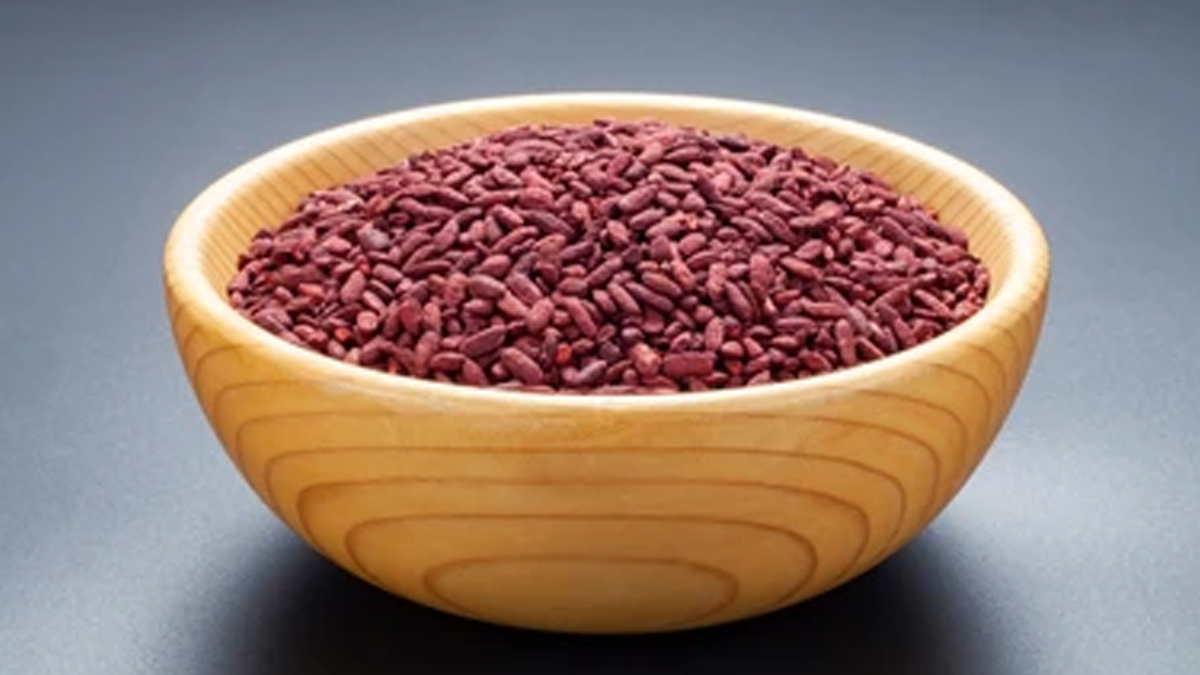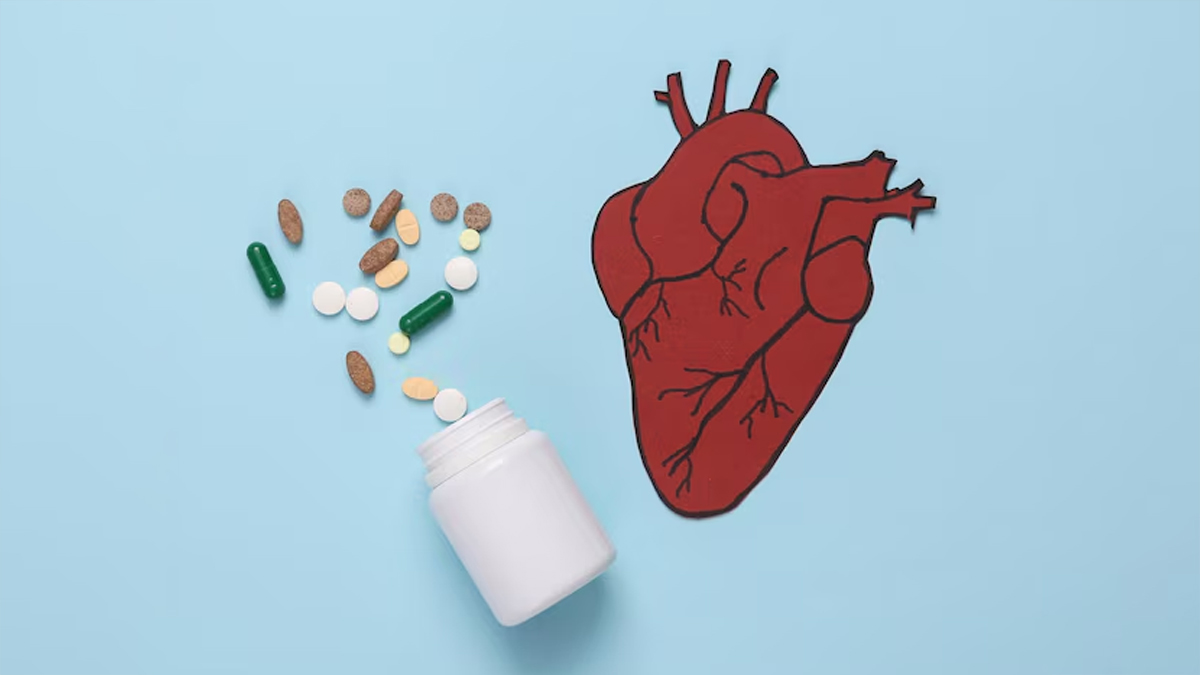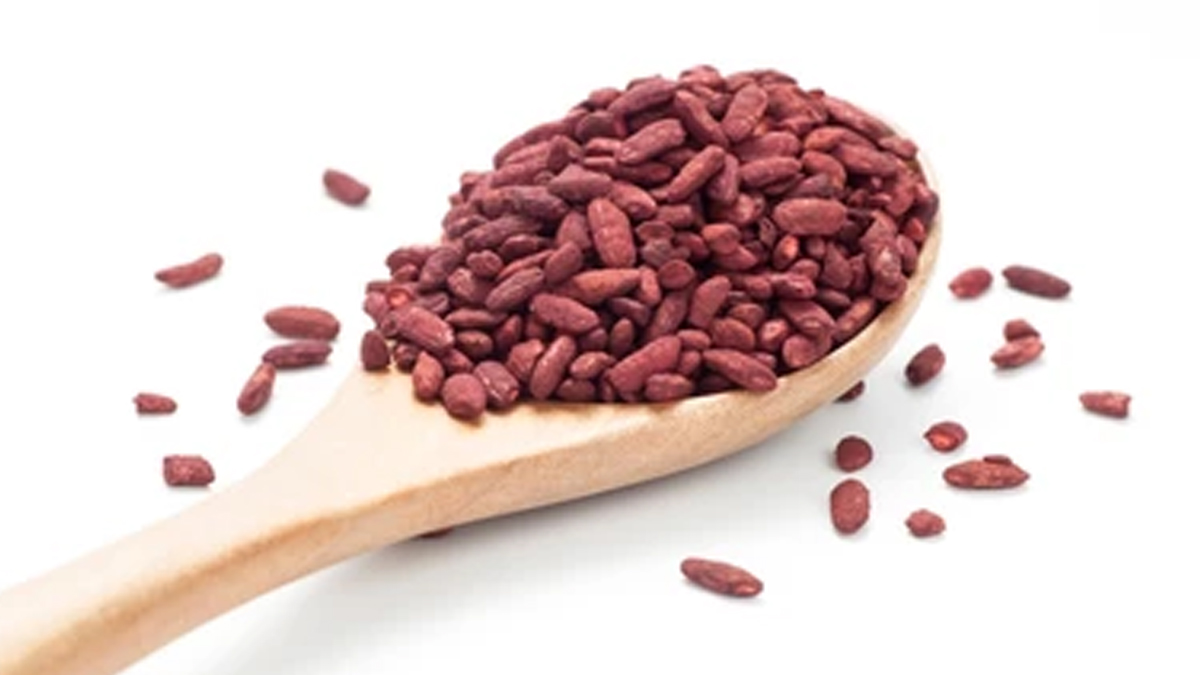Red Yeast Rice: A Natural Source Of Statin-Like Compound That May Help Lower Cholesterol
Published 1 day ago• 4 minute read
Doctor Verified
Statins are a cholesterol-lowering medication that is known for its heart health benefits. But a natural alternative may have a similar cholesterol-lowering effect if taken mindfully.
-1748498431262.jpg)
A 2019 study published in the suggests that statins not only lowered the risk of heart attacks, strokes, and the need for procedures like bypass surgery but also reduced deaths from heart disease and other causes.
Statins are commonly prescribed to people with high cholesterol because they help bring those levels down in a few important ways. They work by blocking a specific enzyme in the liver called HMG-CoA reductase that plays a key role in making cholesterol. This helps reduce the amount of cholesterol in the body, especially Low-Density Lipoprotein (LDL) cholesterol, which can build up in the arteries and raise the risk of heart disease.
Statins can also give a slight boost to the “good” cholesterol, or High-Density Lipoprotein (HDL), which helps clear out the bad cholesterol from the bloodstream. On top of that, they help lower triglycerides, another type of fat in the blood that can affect heart health. Interestingly, statins also have anti-inflammatory effects, which adds to their heart-protective benefits.
Top Stories

Red yeast rice is a traditional Chinese food product made by fermenting white rice with a specific type of yeast called Monascus purpureus.
“Traditionally, it was used to aid digestion, improve blood circulation, and support general cardiovascular health,” says . “In many Asian countries, it is still consumed as part of the regular diet and also as a supplement for its perceived health benefits, especially for managing cholesterol levels.”
In an interaction with the OnlyMyHealth team, , suggests that red yeast rice is often marketed as a “natural” alternative to prescription statins and, in some cases, can provide modest cholesterol-lowering benefits.
He highlights that the the primary active compound in red yeast rice that functions like a statin is monacolin K. "Monacolin K is chemically identical to lovastatin, a prescription statin drug approved for lowering cholesterol. This compound works by inhibiting an enzyme in the liver called HMG-CoA reductase, which is critical for the synthesis of cholesterol. By blocking this enzyme, monacolin K reduces the production of LDL cholesterol, commonly known as bad cholesterol, thereby helping to lower the overall risk of heart disease," he explains.
According to another 2019 study by the Methodist DeBakey Cardiovascular Journal, a daily dose of around 10 mg red yeast rice can lower LDL or “bad” cholesterol by 15–25% within 6-8 weeks, while also reducing total cholesterol and inflammation. The natural foods are said to improve blood vessel health too, with side effects being rare and mild.
However, safety and efficacy can vary significantly between products, the doctor warns, adding that unlike prescription statins, which are standardised and regulated, red yeast rice supplements are classified as dietary supplements and are not subject to the same rigorous quality controls.

Dr Chaudhary suggests that red yeast rice can produce similar side effects to prescription statins due to the presence of monacolin K.
Common side effects include:
- Digestive discomfort
- Headache
In rare cases, more serious complications such as liver damage or a severe muscle condition known as rhabdomyolysis can occur. Because of inconsistent manufacturing standards, there is a risk of taking a dose that is either too low to be effective or too high, increasing the likelihood of adverse effects.
“The potential for harmful contaminants like citrinin also adds a level of risk not typically present with pharmaceutical-grade medications. As with any supplement or medication, it is crucial to monitor liver function and muscle symptoms while taking red yeast rice,” Dr Chaudhary advises.

“Red yeast rice should be avoided by individuals who are already taking prescription statins or other cholesterol-lowering medications, as combining them can increase the risk of side effects like muscle damage or liver issues,” notes Dr Kalia.
She added that it is also not recommended for people with liver disease, kidney disease, or serious medical conditions unless advised by a healthcare provider.
Additionally, pregnant or breastfeeding women should avoid red yeast rice, as its effects on foetal or infant development have not been thoroughly studied.
Moreover, people taking other medications, especially those that affect the liver or interact with statins, should consult a doctor before using red yeast rice.
If you're looking for a more natural way to manage high cholesterol, red yeast rice might be worth considering. This is because of the compound called monacolin K, which is also present in cholesterol-lowering medications like statins. It can help lower bad cholesterol and support heart health. But while it’s available over the counter, it’s not completely risk-free. Because red yeast rice isn’t regulated like prescription drugs, the quality can vary from brand to brand, and the dosage might not always be accurate. So, before you make it a part of your daily routine, especially if you’re already on medication or have any health conditions, it’s best to check with your doctor.













